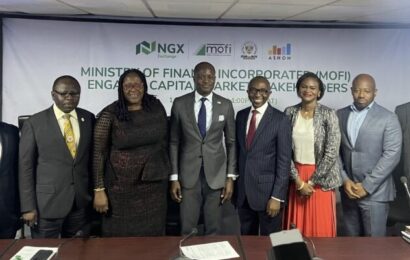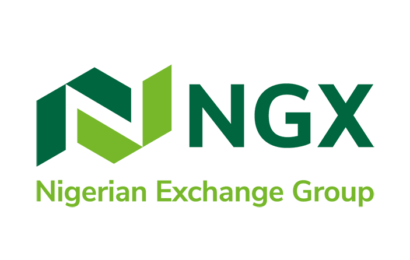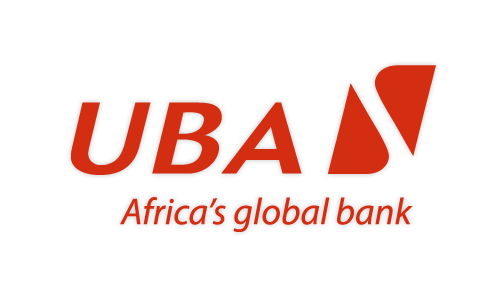
The Executive Chairman, Egyptian Stock Exchange, Mohamed Farid Saleh, has advised financial institution to put in place a detailed Know Your Customer (KYC) policy as part of measures to curtail financial crimes.
In a chat with WFE in house magazine, Saleh also outlined three most important macro trends that will impact the market infrastructure industry in 2019. Exercept:
The cloud system: Businesses are increasingly turning to the cloud to reduce costs and increase business efficiency by moving from infrastructure-based operations to application-based operations. Relying on the cloud is becoming an efficient way of storing data without the space and cost associated with the common practice of database storage.
Know Your Customer (KYC): KYC policies have been expanding for some time and have become very important globally. With issues pertaining to corruption, terrorist financing, and economic crime becoming so prevalent, KYC policies have now evolved into an important tool to combat illegal transactions. Financial crime costs $1.4-3.5 trillion per year, making new preventative technology to protect that data imperative. It’s never been more important for financial entities to identify and block fraudsters, as well as making KYC the watchword of the financial sector in our digital era. Failure in this area could result in hefty financial damage.
Artificial Intelligence (AI): AI is moving from being an unfamiliar entity to a technology used to improve specific business processes. For now, AI looks set to continue its upward course. Organisations have not only become more educated about AI, but also about technologies such as blockchain. Before we know it, AI will be part of our everyday lives.
The WFE’s Sustainability Principles (launched in October 2018) and annual Environmental, Social & Governance (ESG) survey show us that more and more exchanges and CCPs are taking a leadership role in promoting the sustainable finance agenda. How is your business taking a more sustainable approach to the financial system?
The Egyptian Exchange and relevant stakeholders such as the Ministry of Investment and Financial Regulatory Authority (formerly the Capital Market Authority) have achieved significant milestones in promoting governance and sustainability in Egypt. These milestones were established by the Egyptian Institute of Directors (EIoD) in 2003, which issued the first corporate governance code for corporations in 2005 and a corporate governance code for state-owned-enterprises, and then gradually incorporated the most important items of the code into the listing rules issued by the regulator. Subsequently, in 2010, EGX worked with S&P to issue the first index in the region covering ESG disclosures, namely the S&P/EGX ESG index. Furthermore, EGX was a founding member of the UN Sustainable Stock Exchanges (SSE) initiative with two other exchanges in 2012. Furthermore, and since 2016, EGX has been issuing its own annual Sustainability Report to act as a role model for listed companies; EGX has also been very active in promoting ESG disclosures amongst its listed companies, by encouraging them to adopt the “EGX Model Guidance for Reporting on ESG Performance and SDGs”.
At a regional level, EGX proposed the establishment of the African Securities Exchanges Association (ASEA) Sustainability Working Group (SWG) in April 2018, and the development of ASEA-SWG Sustainability Roadmap to identify the ongoing efforts and initiatives implemented in various African exchanges. The working group also published a report during ASEA’s annual flagship conference in Lagos, Nigeria in November 2018. EGX also set up a roadmap assisting African exchanges in their efforts to further promote ESG disclosures.
Finally, EGX is working to enhance female participation at the board level of listed companies and has joined the Women on Board Observatory established by the American University of Cairo (AUC). The aim of this observatory is to raise the awareness of the benefits of gender diversity and to establish a database of eligible candidates to be presented to listed companies to further increase the number of women on boards.
As one of the leading exchanges adopting ESG worldwide (see EGX sustainability timeline), EGX was recognised as one of the seven most active exchanges in this field by the SSE Initiative during its annual Global Dialogue held at the United Nations in Geneva, October 2018.
What are the key strategic initiatives you’re working on at the moment?
EGX has embarked on a reform plan aimed at deepening the country’s capital market. To reach this goal, EGX launched a comprehensive reform strategy in August 2017 looking at reforms from the complete value chain perspective.
The first strategic initiative that EGX has embarked on is developing a derivatives market. This initiative will require the establishment of a CCP and the upgrading of the EGX trading platform to allow trading of financial derivatives. The second reform is associated with the establishment of a spot mercantile market that would help in reforming the underlying spot market for eligible commodities and act as an active underlying market. The third strategic initiative is improving communication and financial literacy and raising awareness about the capital market. This will be achieved by introducing materials for school students covering the basics of saving and investment.
These initiatives have multiple purposes:
The first is designed to enhance the quality of disclosure and attract companies to list on the market;
The second covers intermediation, and introducing new trading mechanisms and financial instruments to the Egyptian market; and
The third is on the demand side. Here, we’re looking at the number of investors their types. and how we can raise their awareness to achieve better financial inclusion. We would also like to have more participants in the market who can benefit from long-term investment in the capital market.
Another reform that EGX has implemented is the establishment of a special unit that revises companies’ financial disclosures and reporting to ensure their completeness from a disclosure perspective.
EGX is also working to encourage pension funds to sign contracts with investment managers licensed by the Financial Regulatory Authority (FRA) to ensure the existence of professional managers.
And finally, numerous reforms have been made to improve the trading rules.






